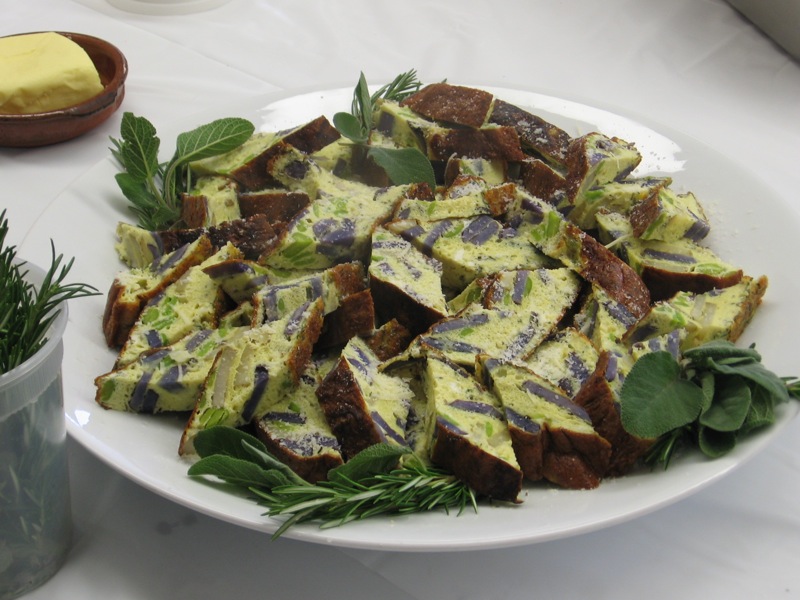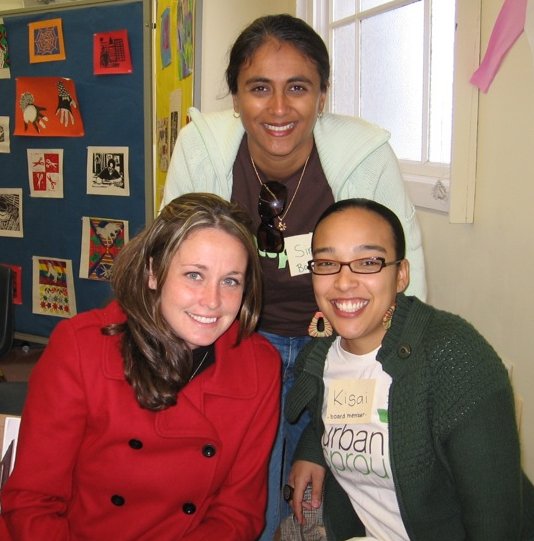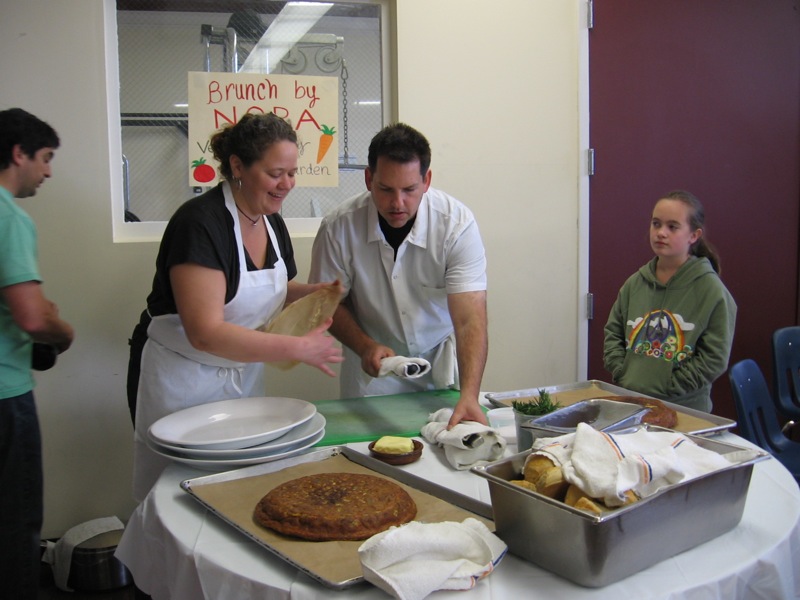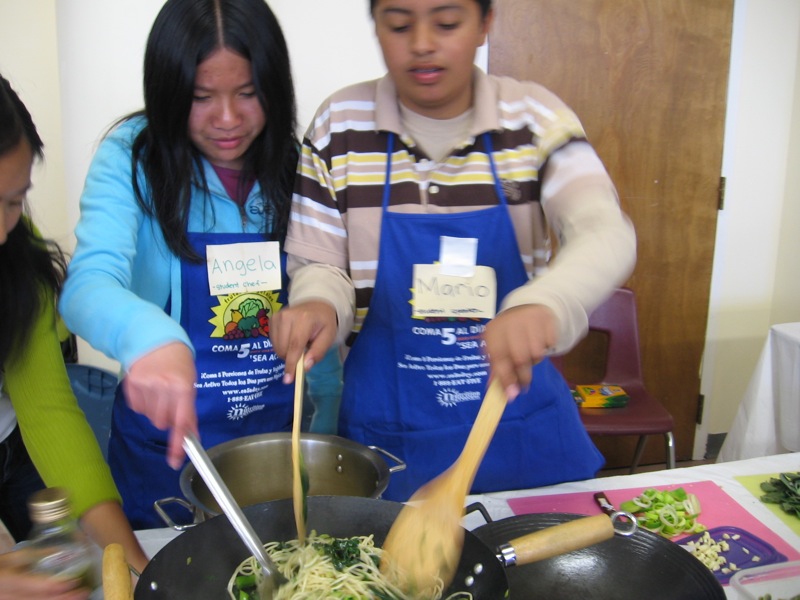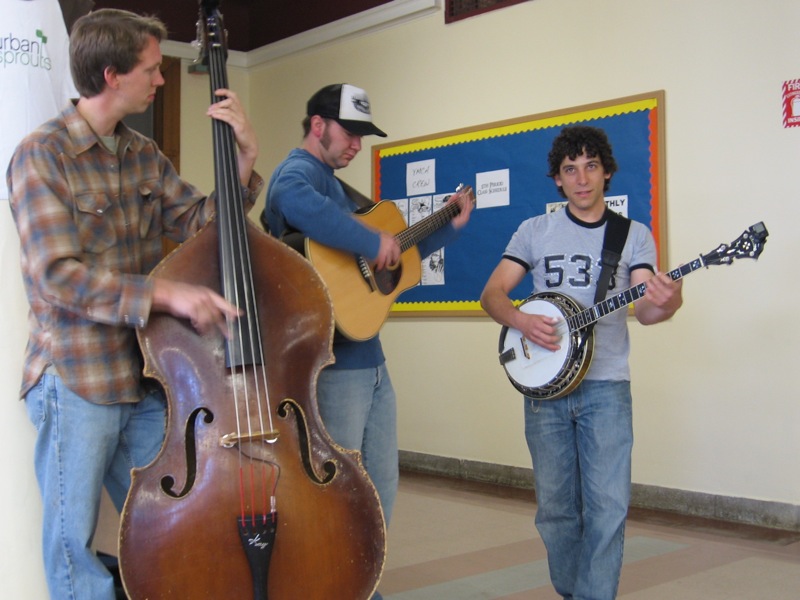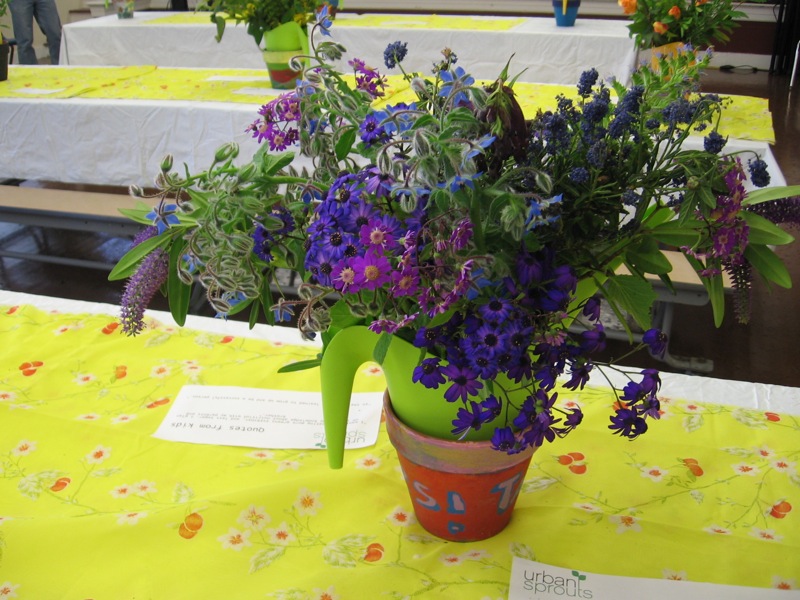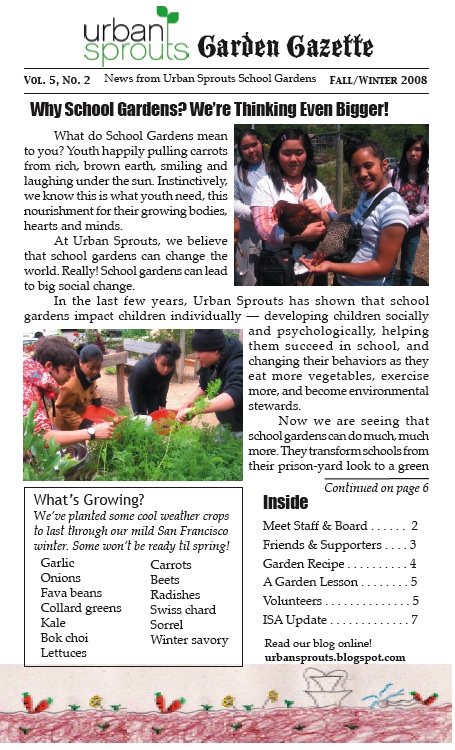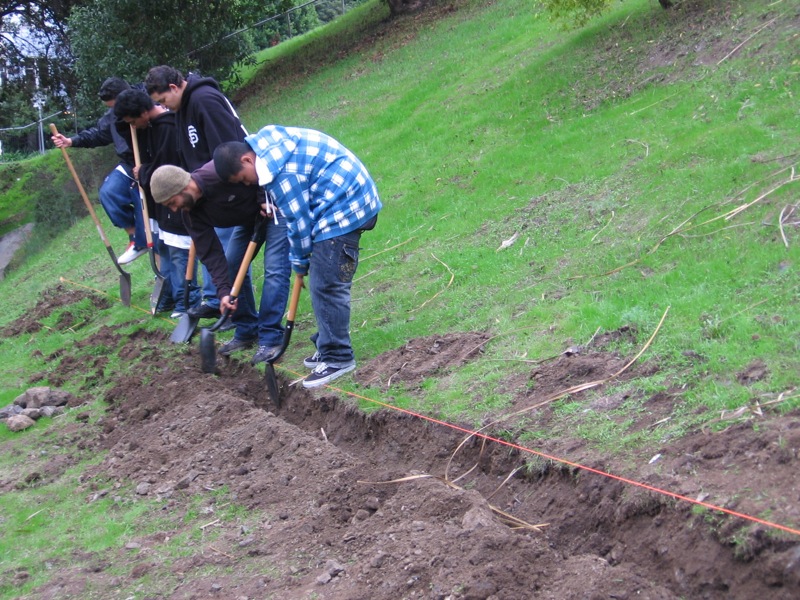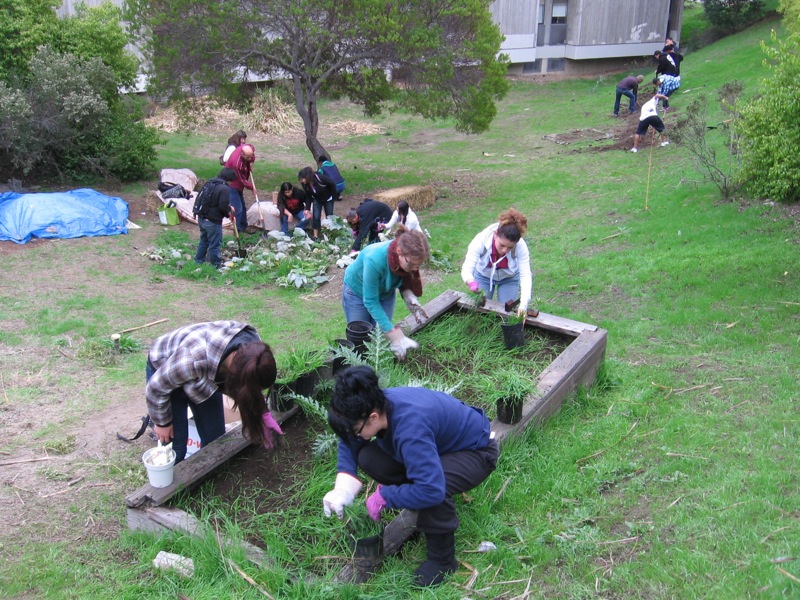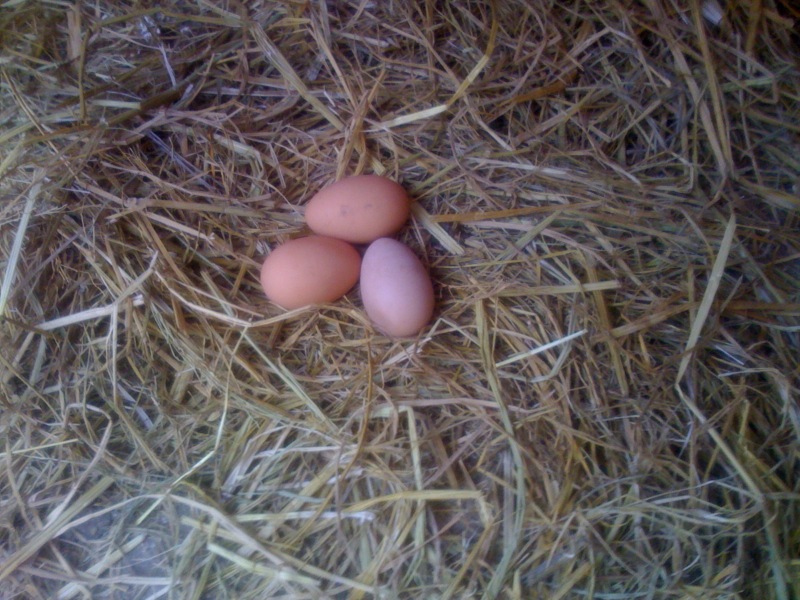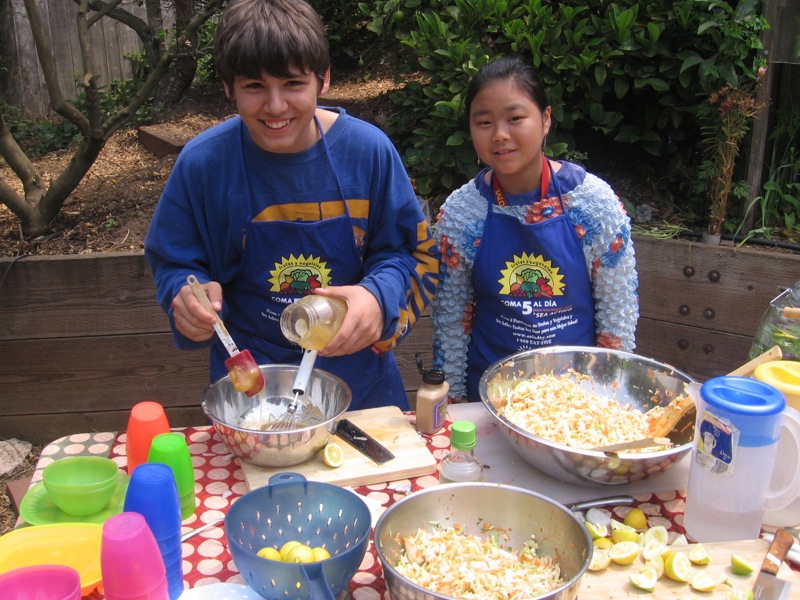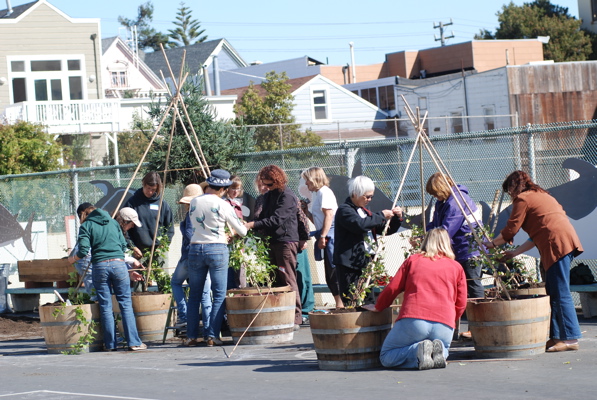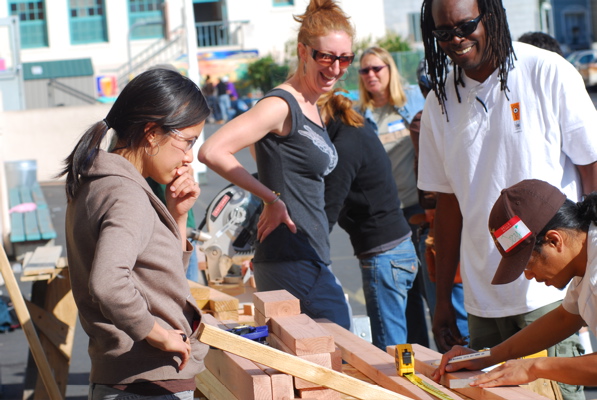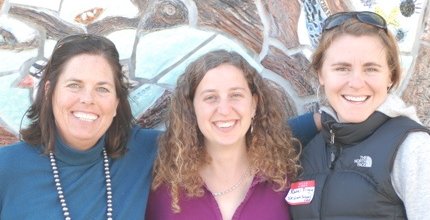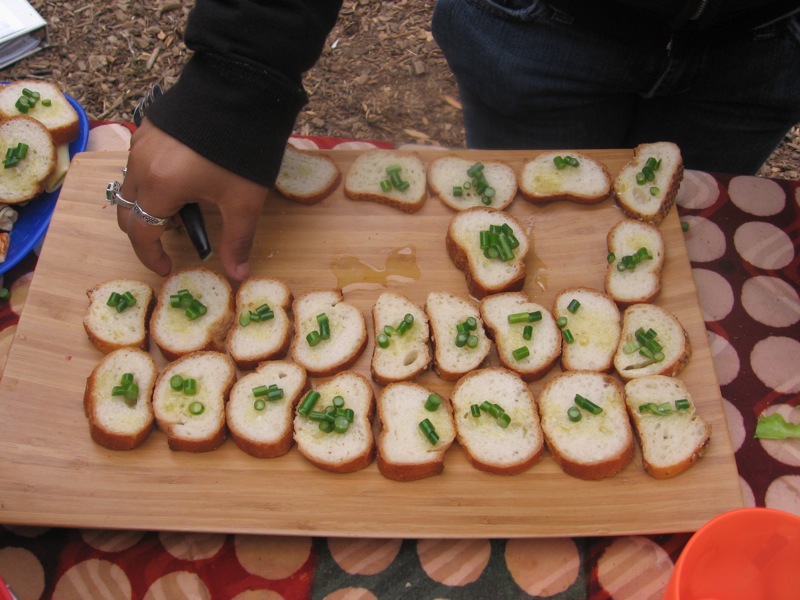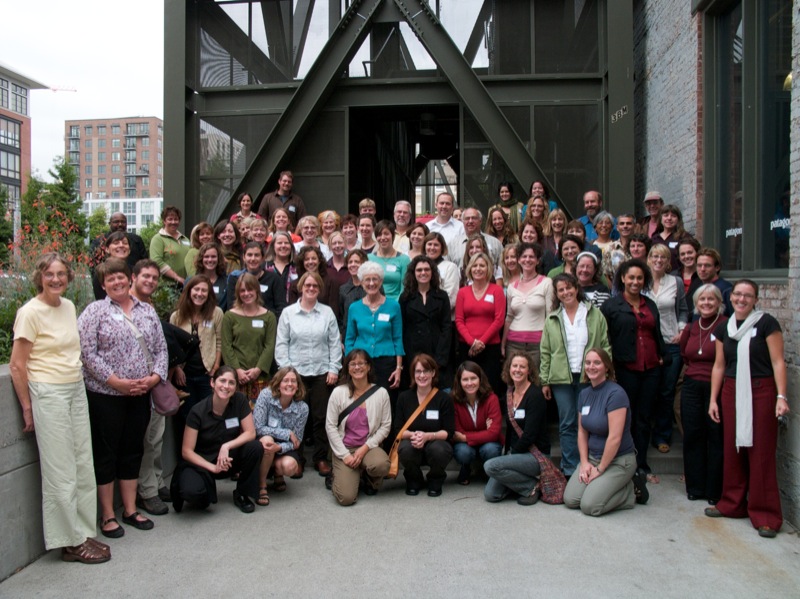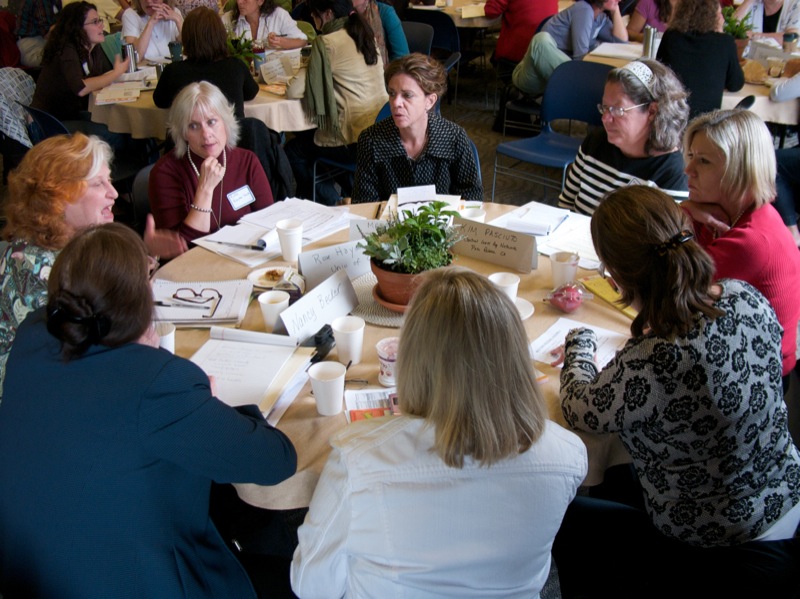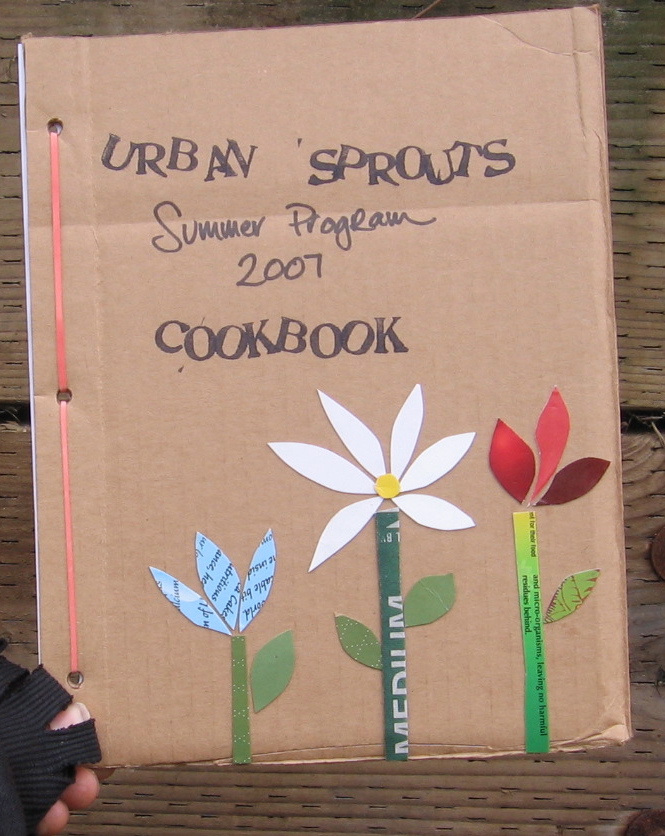 I recently learned from my students that oxalis, an invasive and aggressive weed for many San Francisco gardeners, is also called sourgrass, whose flower stalk can actually be chewed. Although oxalis has another beneficial function, that is, to prevent soil erosion on slopes, I can't help but feel that every time I'm up at one of my schools, it's a renewed battle between oxalis and gardener.
I recently learned from my students that oxalis, an invasive and aggressive weed for many San Francisco gardeners, is also called sourgrass, whose flower stalk can actually be chewed. Although oxalis has another beneficial function, that is, to prevent soil erosion on slopes, I can't help but feel that every time I'm up at one of my schools, it's a renewed battle between oxalis and gardener.Last week, I issued a challenge to my students at Ida B. Wells to pull out as much oxalis as they could from our two main beds, which would be documented as before and after pictures on this blog. Although some students went right to work, others required much more coaxing; many students seem to have an inherent dislike of weeding, even if it's just the patch in front of them. At the end of class and after three huge piles of oxalis, it still looked like we barely made a dent in the ratio of oxalis to vegetables. Note to self - next time, to prevent oxalis takeovers, try mulching early before the rains start.







 At ISA the high school seminar got the daunting opportunity to install a drip irrigation system for our garden. This project took a lot of team work and problem solving skills in order to piece together and bury our water pipes. The whole project could not have been done without the help of our dedicated volunteers Casey and Carter. This week we’ll also be saying goodbye to Ms. Stones, our favorite sub, who has been working with us since the beginning of the school year.
At ISA the high school seminar got the daunting opportunity to install a drip irrigation system for our garden. This project took a lot of team work and problem solving skills in order to piece together and bury our water pipes. The whole project could not have been done without the help of our dedicated volunteers Casey and Carter. This week we’ll also be saying goodbye to Ms. Stones, our favorite sub, who has been working with us since the beginning of the school year.


